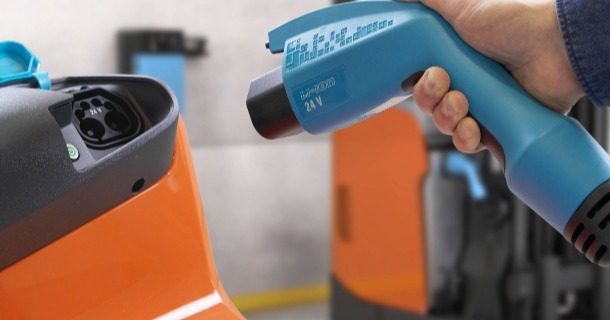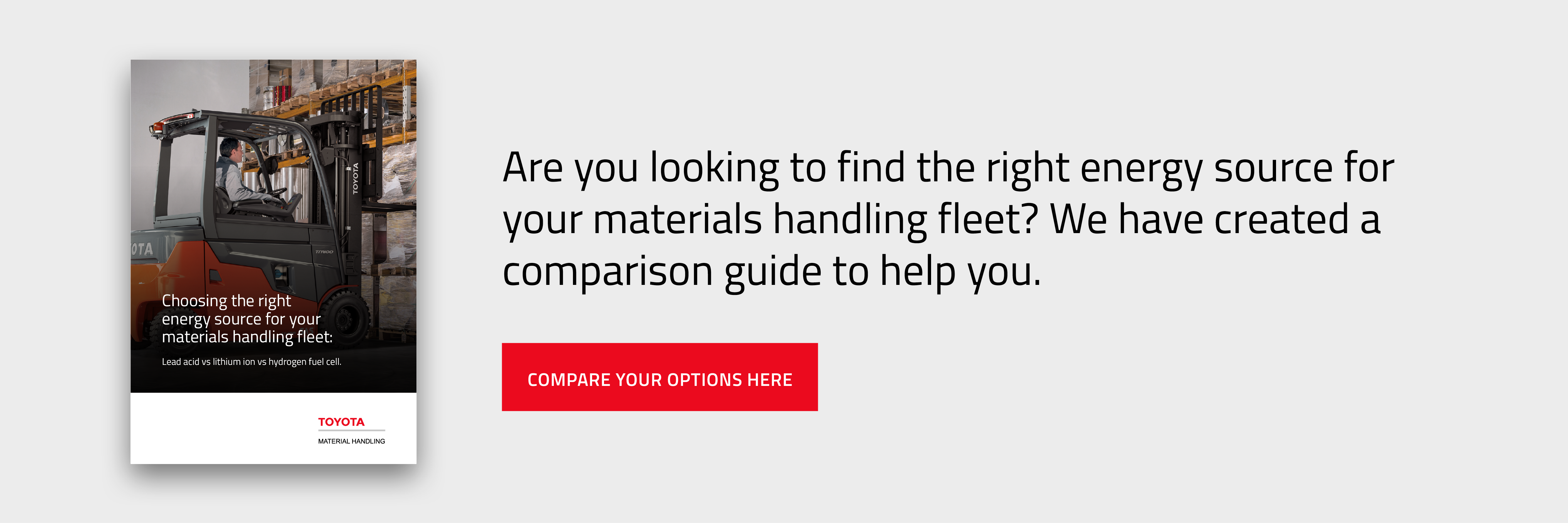Electric forklift trucks offer an effective solution for businesses looking to maximise efficiency, streamline operations and reduce costs.
Unlike traditional diesel and petrol models, electric forklifts generate zero emissions and require fewer refill trips during a shift. But what types of electric fuels exist to power these forklift trucks? We explore the different options in this article.
Lead-acid batteries.
Lead-acid batteries are one of the most popular and cost-effective fuel sources for electric forklift trucks. They provide reliable energy, allowing businesses to keep operations running without interruption or delays.
These batteries also have a long life span, making them an excellent option for businesses that need extended operating time between charges. This significantly reduces costs and prevents unplanned downtime due to battery depletion.
Efficiency is another significant advantage of lead-acid batteries for electric forklift trucks. As they are powered by electricity, they require less maintenance and have fewer emissions than other fuel types. This will save your business time and money in the long run.
To learn more about lead-acid batteries, their benefits and if they could be the right solution for your business, read this article.
Lithium-ion batteries.
Lithium-ion batteries are quickly becoming another go-to fuel source for electric forklifts. This is down to a range of benefits they offer to businesses.
One of the standout benefits of lithium-ion batteries is their superior energy density. They are much lighter than traditional lead-acid batteries and have a higher energy-to-weight ratio, making them ideal for forklifts that require more power without the extra weight.
Unlike lead-acid batteries, lithium-ion batteries last much longer and can typically be recharged up to 1,000 times before needing to be replaced.
This makes them significantly more cost-efficient in the long run since you do not need to buy new ones as often. They also charge faster than lead-acid batteries and typically take less than 30 minutes to reach full capacity.
Discover everything you need to know about lithium-ion batteries by reading this article.
Hydrogen fuel cells.
A hydrogen fuel cell is a device that converts chemical energy stored in hydrogen molecules into electrical energy to power an electric motor.
In the case of a forklift truck, its electric motor is powered directly by the fuel cell, eliminating the need for additional fuel storage onsite.
This also means there is no need to regularly refill fuel tanks, allowing forklift operators to spend more time doing productive work in the warehouse instead.
Along with being cost-effective and efficient, hydrogen fuel cells are much better for the environment than traditional fuels.
Unlike traditional sources like diesel and gas, which release potentially harmful emissions, hydrogen fuel cells produce no emissions of any kind — only water vapour.
Find the right energy source for your forklift trucks.
Our guide compares the different energy sources available for your forklift trucks. Inside, we look at factors such as initial costs, performance, refuelling times and environmental impact.
Access your copy of the guide below.

